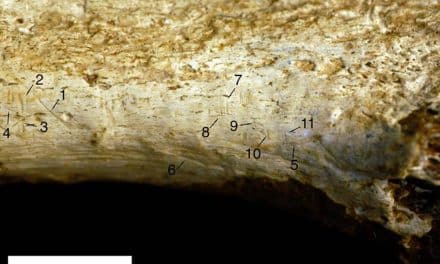Data from foraging societies around the world show that women have been, and are often, involved in hunting large game
Analysis of data from dozens of foraging societies around the world shows that women hunt in at least 79% of these societies, opposing the widespread belief that men exclusively hunt and women exclusively gather.
The research was conducted by Abigail Anderson of Seattle Pacific University, US, and colleagues.
A common belief holds that, among foraging populations, men have typically hunted animals while women gathered plant products for food.
However, mounting archaeological evidence from across human history and prehistory is challenging this paradigm; for instance, women in many societies have been found buried alongside big-game hunting tools.
Some researchers have suggested that women’s role as hunters was confined to the past, with more recent foraging societies following the paradigm of men as hunters and women as gatherers.
To investigate that possibility, Anderson and colleagues analysed data from the past 100 years on 63 foraging societies around the world, including societies in North and South America, Africa, Australia, Asia, and the Oceanic region.
- Face of Anglo-Saxon teenage VIP revealed
- Climatic changes did not affect Neanderthal hunting patterns
- Ancient wreck’s ‘crewman’ was a woman
Intentional hunting
They found that women hunt in 79% of the analysed societies, regardless of their status as mothers.
More than 70% of female hunting appears to be intentional - as opposed to opportunistic killing of animals encountered while performing other activities, and intentional hunting by women appears to target game of all sizes, most often large game.
The analysis also revealed that women are actively involved in teaching hunting practices and that they often employ a greater variety of weapon choice and strategies than men.
These findings suggest that, in many foraging societies, women are skilled hunters and play an instrumental role in the practice, adding to the evidence opposing long-held perceptions about gender roles in foraging societies.
The authors note that these gatherer stereotypes have influenced previous archaeological studies, with, for instance, some researchers reluctant to interpret objects buried with women as hunting tools.
They call for a re-evaluation of such evidence and caution against misapplying the idea of men as hunters and women as gatherers in future research.
The authors add: “Evidence from around the world shows that women participate in subsistence hunting in the majority of cultures.”
The findings are published in PLOS ONE.
Image: The research compiled evidence from around the world to show that women participate in subsistence hunting in the majority of cultures. Mohamed Hassan, Pixabay (CC0) https://creativecommons.org/publicdomain/zero/1.0/.












